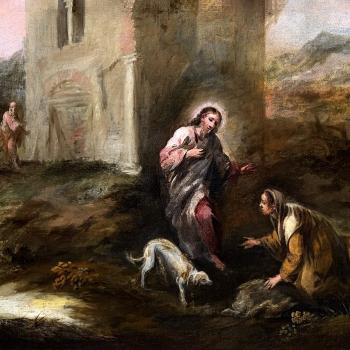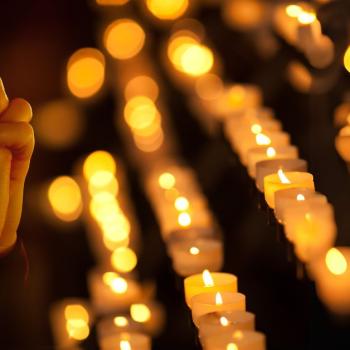It is important to underscore here the way in which the Mormon restoration of these ancient offices and practices resulted in a very significant departure from the classical Protestant understanding of religious authority. The subtlety of the issues at stake here is often missed by us Evangelicals, with the result that we typically get sidetracked in our efforts to understand our basic disagreements with Mormon thought. We often proceed as if the central authority issue to debate with Mormons has to do with the question of which authoritative texts ought to guide us in understanding the basic issues of life. We Evangelicals accept the Bible alone as our infallible guide while, we point out, the Latter-day Saints add another set of writings, those that comprise the Book of Mormon, along with the records of additional Church teachings to the canon- we classic Protestants are people of the Book while Mormons are people of the Books.
This way of getting at the nature of our differences really does not take us very far into exploring some of our basic disagreements. What we also need to see is that in restoring some features of Old Testament Israel, Mormonism has also restored the kinds of authority patterns that guided the life of Israel. The Old Testament people of God were not a people of the Book as such -- mainly because for most of their history, there was no completed Book. Ancient Israel was guided by an open canon [of scripture] and the leadership of the prophets. And it is precisely this pattern of communal authority that Mormonism restored. Evangelicals may insist that Mormonism has too many books. But the proper Mormon response is that even these Books are not enough to give authoritative guidance to the present-day community of the faithful. The books themselves are products of a prophetic office, an office that has been reinstituted in these latter days. People fail to discern the full will of God if they do not live their lives in the anticipation that they will receive new revealed teachings under the authority of the living prophets.
Thus in Mormonism, as for Judaism and Catholicism, scripture plays a central role, but there is a layer of authoritative interpreters between the time-dependent texts and today's worshippers. Unlike Judaism's rabbis and Catholicism's magisterium, that role in the LDS Church potentially extends beyond interpretation into receiving new revelation that may not be based in any text and even overturn prior understandings, policies, or practices. As one LDS educator puts it, "we are not based on the Bible [or any other book] -- we are based on what the Bible is based on: revelation to living prophets." Coupled with the fact that Mormonism does not take any prophet or book of scripture, ancient or modern, as infallible or inerrant, this easily leads to confusion. Some non-LDS have compared trying to pin down "Official Mormon Doctrine" (not itself an LDS term) to trying to nail Jell-O to a wall.
While I think this complaint is somewhat exaggerated, likely out of frustration by those used to dealing with formal creedal churches with a different authority structure, it's nevertheless understandable. We are a young Church, and while lacking, at this point, formal categories like the Roman Catholic Church's nihil obstat or imprimatur, there are yet some doctrinal boundaries.
LDS thinkers have approached this issue in several ways. In several blogposts and published articles, Nathan Oman (an LDS professor of law at the College of William & Mary) has compared the doctrinal boundaries in Mormonism to common-law court decisions and similar processes. Robert Millett (LDS professor of Religious Education at BYU) suggests in "What is Our Doctrine?" that LDS doctrine is that which is taught repeatedly and over time by mainstream and official sources. Blake Ostler (a well-published LDS lawyer with a strong theological/philosophical bent) proposes that LDS recognize a continuum of authoritative sources for doctrine. Stephen Robinson (an LDS professor of Religious Education at BYU) co-authored a groundbreaking book with Evangelical scholar Craig Blomberg, How Wide the Divide, in which he primarily argues that only that which is canonical is doctrinal. (Mormonism does have a formal process for canonizing revelation and adding it to the scriptures.) One website gathers together statements of present and past General Authorities on the topic. Other approaches and discussions exist as well, as LDS blogs have no shortage of discussions of either the general question of doctrinality or specific applications of it.




